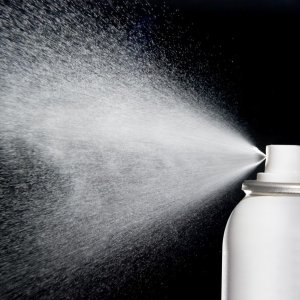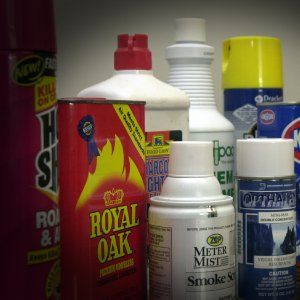Can You Go Through Inhalant Withdrawal

Despite the fact that their words and actions often imply the contrary, drug addicts are usually aware, at least on some level, that they have a problem with drug substances and they need help. They may desire to achieve full and lasting recovery, even if it’s only because they are tired of the constant demands that drug dependence place upon their life, but they don’t know what to do or if they can actually make it. Facing and working through drug addiction treatment can be incredibly challenging for many different reasons--not the least of which is because the individual has to get through uncomfortable and sometimes even painful withdrawals. This is true no matter what drug substance the individual is abusing--even if the drug happens to be a common household product, like wood glue, that the individual is using in a way other than intended in order to experience a desirable physiological change.
What are Inhalants
Inhalants are drug substances that are sniffed or inhaled in rapid succession in order to produce a desirable high or rush. When considering the unique drug category that inhalants fall into, it’s important to recognize that the only way for an individual to consume these drug substances and achieve the desired effects is through inhalation. These highs and rushes are normally quite short-lived--lasting only around five minutes total--which causes the individual to use inhalants over and over again in a short time frame, further increasing the damage caused by these dangerous chemicals.
There are many different forms of inhalants, including common household products, industrial cleaners, solvents, fuels, medical supplies, and medications. Some of the most common inhalants that are used include:
- Model airplane glue
- Rubber cement
- Household glue
- Nitrous oxide
- Ether
- Chloroform
- Dry cleaning fluid
- Spot remover
- Degreaser
- Vegetable cooking spray
- Butane
- Propane
- Helium
- Nail polish remover
- Paint thinner
- Correction fluid
- Toxic markers
- Cigar lighter fluid
- Gasoline
- Spray paint
- Hair spray
- Air freshener
- Deodorant
- Fabric protector
The use or abuse of inhalants can cause permanent damage to the individual due to the chemicals that are being inhaled and driven into the bloodstream. An individual who is using inhalants may experience serious emotional, cognitive or physical problems as a result, and they can sometimes even suffer from acute cardiac effects that result in sudden death. Due to the fact that inhalant use can be so incredibly damaging, it is vital that an individual who is using or abusing them get immediate help. Some of the signs of inhalant addiction include:
- Short-term memory loss
- Loss of senses
- Irregular gait
- Lack of coordination
- Disorientation
- Depression
- Weight loss
- Lack of concentration
- Sores around the mouth
- Red eyes
- Runny eyes and nose
- Chemical odors on the breath
- Drunken appearance
- Loss of appetite
- Irritability
- Anxiety
- Excitability
- Slurred speech
- Nausea
- Vomiting
- Behavioral problems
- Tremors
- Psychological problems
Any length of inhalant use can result in damage to the peripheral nervous system, leukemia, lung inflammation and damage, liver damage, kidney problems, muscle degeneration, and more. But while it is definitely important for the individual to stop their use of inhalants, it is also important that they receive professional, medical supervision while working through inhalant withdrawal, as this too can be incredibly challenging and dangerous.
Working Through Inhalant Withdrawal
As is the case with all other drug substances, withdrawing from inhalant use can cause the body to go into shock and produce some highly undesirable symptoms. Some inhalant withdrawal symptoms include:
- Hand tremors
- Nervousness
- Excessive sweating
- Hallucinations
- Headaches
- Muscle pains
- Psychosis
- Irritability
- Insomnia
- Aggression
Individuals working through inhalant withdrawals may need to receive support for their neurological, cardiac, respiratory, renal, and hepatic systems in the form of artificial ventilation and other medical means. Fortunately, with effective and thorough rehabilitation treatment an individual can successfully and permanently address and resolve inhalant abuse or addiction problems and move on to a healthier future.
If you know someone who is suffering from inhalant abuse or addiction, contact Narconon Arrowhead today at 855-646-8505 so that they can be guided onto the path of recovery as soon as possible.


